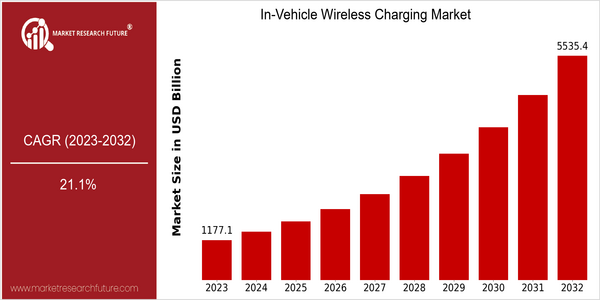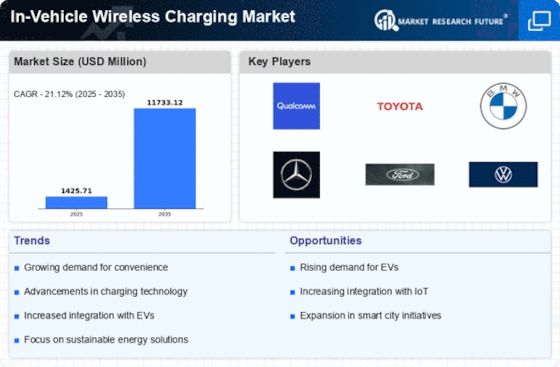-
SECTION I: EXECUTIVE SUMMARY AND KEY HIGHLIGHTS
-
Executive’s handbook
-
The Top Performing Segments
-
Key Trends Summarized
-
Pricing Outlook
-
Strategic Insights
-
Who are the Key Players in the Market?
-
SECTION II: SCOPING, METHODOLOGY AND MARKET STRUCTURE
-
Market Introduction
-
Definition
-
Report Segmentation & Scope
-
Regional & Country Level Coverage
-
Why you need this report?
-
Research Methodology
-
Research Process
-
Secondary Research
-
Data Mining & Condensation
-
Sources (Associations, Organizations, Magazines, Paid Databases)
-
Primary Research
-
Sample Size (Demand-Supply, Company Product, Designations, Region)
-
Sources
-
Factorial Analysis & Approach Setting
-
Estimation & Forecast Models
-
Pricing Baskets
-
Analyst Hours & Team
-
SECTION III: QUALITATIVE ANALYSIS
-
Market Dynamics
-
Introduction
-
Growth Parameters Mapped - Drivers
-
Demand for luxury features in vehicles
-
Driver 2
-
What are the challenges faced by Industry Participants?
-
Rise in competition among automaker
-
Opportunities
-
Opportunity 1
-
Opportunity 2
-
Market Factor Analysis
-
Supply/Value chain Analysis
-
R&D and Designing
-
Manufacturing
-
Distribution & Sales
-
Post Sales Services
-
Porter’s Five Forces Model
-
Bargaining Power of Suppliers
-
Bargaining Power of Buyers
-
Threat of New Entrants
-
Threat of Substitutes
-
Intensity of Rivalry
-
COVID-19 Impact Analysis
-
Impact on Overall Automotive Industry
-
Economic Impact
-
Impact on Global In-Vehicle Wireless Charging Market
-
Impact on Supply Chain of In-Vehicle Wireless Charging
-
Impact on Pricing of In-Vehicle Wireless Charging Device Product
-
SECTION IV: QUANTITATIVE ANALYSIS
-
In Vehicle Wireless Charging Market, by vehicle category (USD MILLION)
-
Introduction
-
Luxury
-
Global In-Vehicle Wireless Charging Market Size: Market Estimates & In Vehicle Wireless Charging Market, By Luxury, 2019-2032
-
Standard/Regular
-
Global In-Vehicle Wireless Charging Market Size: Market Estimates & In Vehicle Wireless Charging Market, By Standard/Regular, 2019-2032
-
In Vehicle Wireless Charging Market, by Application (USD MILLION)
-
Introduction
-
OEM
-
Global In-Vehicle Wireless Charging Market Size: Market Estimates & In Vehicle Wireless Charging Market, By OEM, 2019-2032
-
Aftermarket
-
Global In-Vehicle Wireless Charging Market Size: Market Estimates & In Vehicle Wireless Charging Market, By Aftermarket, 2019-2032
-
In Vehicle Wireless Charging Market, by Vehicle Type (USD MILLION)
-
Introduction
-
Passenger Vehicle
-
Global In-Vehicle Wireless Charging Market Size: Market Estimates & In Vehicle Wireless Charging Market, By Passenger Vehicle, 2019-2032
-
Commercial Vehicle
-
Global In-Vehicle Wireless Charging Market Size: Market Estimates & In Vehicle Wireless Charging Market, By Commercial Vehicle, 2019-2032
-
In Vehicle Wireless Charging Market, by Region (USD MILLION)
-
Introduction
-
North America
-
North America In-Vehicle Wireless Charging Market Size: Market Estimates & In Vehicle Wireless Charging Market, By Country, 2019-2032
-
North America In-Vehicle Wireless Charging Market Size: Market Estimates & In Vehicle Wireless Charging Market, By Vehicle category, 2019-2032
-
North America In-Vehicle Wireless Charging Market Size: Market Estimates & In Vehicle Wireless Charging Market, By Application, 2019-2032
-
North America In-Vehicle Wireless Charging Market Size: Market Estimates & In Vehicle Wireless Charging Market, By Vehicle Type, 2019-2032
-
US
-
US In-Vehicle Wireless Charging Market Size: Market Estimates & In Vehicle Wireless Charging Market, By Country, 2019-2032
-
US In-Vehicle Wireless Charging Market Size: Market Estimates & In Vehicle Wireless Charging Market, By Vehicle category, 2019-2032
-
US In-Vehicle Wireless Charging Market Size: Market Estimates & In Vehicle Wireless Charging Market, By Application, 2019-2032
-
US In-Vehicle Wireless Charging Market Size: Market Estimates & In Vehicle Wireless Charging Market, By Vehicle Type, 2019-2032
-
Canada
-
Canada In-Vehicle Wireless Charging Market Size: Market Estimates & In Vehicle Wireless Charging Market, By Vehicle category, 2019-2032
-
Canada In-Vehicle Wireless Charging Market Size: Market Estimates & In Vehicle Wireless Charging Market, By Application, 2019-2032
-
Canada In-Vehicle Wireless Charging Market Size: Market Estimates & In Vehicle Wireless Charging Market, By Vehicle Type, 2019-2032
-
Europe
-
Europe In-Vehicle Wireless Charging Market Size: Market Estimates & In Vehicle Wireless Charging Market, By Vehicle category, 2019-2032
-
Europe In-Vehicle Wireless Charging Market Size: Market Estimates & In Vehicle Wireless Charging Market, By Application, 2019-2032
-
Europe In-Vehicle Wireless Charging Market Size: Market Estimates & In Vehicle Wireless Charging Market, By Vehicle Type, 2019-2032
-
Germany
-
Germany In-Vehicle Wireless Charging Market Size: Market Estimates & In Vehicle Wireless Charging Market, By Vehicle category, 2019-2032
-
Germany In-Vehicle Wireless Charging Market Size: Market Estimates & In Vehicle Wireless Charging Market, By Application, 2019-2032
-
Germany In-Vehicle Wireless Charging Market Size: Market Estimates & In Vehicle Wireless Charging Market, By Vehicle Type, 2019-2032
-
France
-
France In-Vehicle Wireless Charging Market Size: Market Estimates & In Vehicle Wireless Charging Market, By Vehicle category, 2019-2032
-
France In-Vehicle Wireless Charging Market Size: Market Estimates & In Vehicle Wireless Charging Market, By Tretment, 2019-2032
-
France In-Vehicle Wireless Charging Market Size: Market Estimates & In Vehicle Wireless Charging Market, By Vehicle Type, 2019-2032
-
UK
-
UK In-Vehicle Wireless Charging Market Size: Market Estimates & In Vehicle Wireless Charging Market, By Vehicle category, 2019-2032
-
UK In-Vehicle Wireless Charging Market Size: Market Estimates & In Vehicle Wireless Charging Market, By Application, 2019-2032
-
UK In-Vehicle Wireless Charging Market Size: Market Estimates & In Vehicle Wireless Charging Market, By Vehicle Type, 2019-2032
-
Spain
-
Spain In-Vehicle Wireless Charging Market Size: Market Estimates & In Vehicle Wireless Charging Market, By Vehicle category, 2019-2032
-
Spain In-Vehicle Wireless Charging Market Size: Market Estimates & In Vehicle Wireless Charging Market, By Application, 2019-2032
-
Spain In-Vehicle Wireless Charging Market Size: Market Estimates & In Vehicle Wireless Charging Market, By Vehicle Type, 2019-2032
-
Italy
-
Italy In-Vehicle Wireless Charging Market Size: Market Estimates & In Vehicle Wireless Charging Market, By Vehicle category, 2019-2032
-
Italy In-Vehicle Wireless Charging Market Size: Market Estimates & In Vehicle Wireless Charging Market, By Tretament, 2019-2032
-
Italy In-Vehicle Wireless Charging Market Size: Market Estimates & In Vehicle Wireless Charging Market, By Vehicle Type, 2019-2032
-
Rest of Europe
-
Rest of Europe In-Vehicle Wireless Charging Market Size: Market Estimates & In Vehicle Wireless Charging Market, By Vehicle category, 2019-2032
-
Rest of Europe In-Vehicle Wireless Charging Market Size: Market Estimates & In Vehicle Wireless Charging Market, By Application, 2019-2032
-
Rest of Europe In-Vehicle Wireless Charging Market Size: Market Estimates & In Vehicle Wireless Charging Market, By Vehicle Type, 2019-2032
-
Asia-Pacific
-
Asia-Pacific In-Vehicle Wireless Charging Market Size: Market Estimates & In Vehicle Wireless Charging Market, By Country, 2019-2032
-
Asia Pacific In-Vehicle Wireless Charging Market Size: Market Estimates & In Vehicle Wireless Charging Market, By Vehicle category, 2019-2032
-
Asia Pacific In-Vehicle Wireless Charging Market Size: Market Estimates & In Vehicle Wireless Charging Market, By Application, 2019-2032
-
Asia Pacific In-Vehicle Wireless Charging Market Size: Market Estimates & In Vehicle Wireless Charging Market, By Vehicle Type, 2019-2032
-
China
-
China In-Vehicle Wireless Charging Market Size: Market Estimates & In Vehicle Wireless Charging Market, By Vehicle category, 2019-2032
-
China In-Vehicle Wireless Charging Market Size: Market Estimates & In Vehicle Wireless Charging Market, By Application, 2019-2032
-
China In-Vehicle Wireless Charging Market Size: Market Estimates & In Vehicle Wireless Charging Market, By Vehicle Type, 2019-2032
-
India
-
India In-Vehicle Wireless Charging Market Size: Market Estimates & In Vehicle Wireless Charging Market, By Vehicle category, 2019-2032
-
India In-Vehicle Wireless Charging Market Size: Market Estimates & In Vehicle Wireless Charging Market, By Tretment, 2019-2032
-
India In-Vehicle Wireless Charging Market Size: Market Estimates & In Vehicle Wireless Charging Market, By Vehicle Type, 2019-2032
-
Japan
-
Japan In-Vehicle Wireless Charging Market Size: Market Estimates & In Vehicle Wireless Charging Market, By Vehicle category, 2019-2032
-
Japan In-Vehicle Wireless Charging Market Size: Market Estimates & In Vehicle Wireless Charging Market, By Application, 2019-2032
-
Japan In-Vehicle Wireless Charging Market Size: Market Estimates & In Vehicle Wireless Charging Market, By Vehicle Type, 2019-2032
-
South Korea
-
South Korea In-Vehicle Wireless Charging Market Size: Market Estimates & In Vehicle Wireless Charging Market, By Vehicle category, 2019-2032
-
South Korea In-Vehicle Wireless Charging Market Size: Market Estimates & In Vehicle Wireless Charging Market, By Application, 2019-2032
-
South Korea In-Vehicle Wireless Charging Market Size: Market Estimates & In Vehicle Wireless Charging Market, By Vehicle Type, 2019-2032
-
Rest of Asia-Pacific
-
Rest of Asia Pacific In-Vehicle Wireless Charging Market Size: Market Estimates & In Vehicle Wireless Charging Market, By Vehicle category, 2019-2032
-
Rest of Asia Pacific In-Vehicle Wireless Charging Market Size: Market Estimates & In Vehicle Wireless Charging Market, By Application, 2019-2032
-
Rest of Asia Pacific In-Vehicle Wireless Charging Market Size: Market Estimates & In Vehicle Wireless Charging Market, By Vehicle Type, 2019-2032
-
Rest of the world
-
Middle East & Africa
-
Middl East and Africa In-Vehicle Wireless Charging Market Size: Market Estimates & In Vehicle Wireless Charging Market, By Vehicle category, 2019-2032
-
Middl East and Africa In-Vehicle Wireless Charging Market Size: Market Estimates & In Vehicle Wireless Charging Market, By Application, 2019-2032
-
Middl East and Africa In-Vehicle Wireless Charging Market Size: Market Estimates & In Vehicle Wireless Charging Market, By Vehicle Type, 2019-2032
-
South America
-
South America In-Vehicle Wireless Charging Market Size: Market Estimates & In Vehicle Wireless Charging Market, By Vehicle category, 2019-2032
-
South America In-Vehicle Wireless Charging Market Size: Market Estimates & In Vehicle Wireless Charging Market, By Application, 2019-2032
-
South America In-Vehicle Wireless Charging Market Size: Market Estimates & In Vehicle Wireless Charging Market, By Vehicle Type, 2019-2032
-
SECTION V: COMPETITIVE ANALYSIS
-
Competitive Landscape
-
Introduction
-
Competition Dashboard
-
Company Market Share Analysis, 2022-23 (%)
-
Competitive Benchmarking
-
The Leading Player in terms of Number of Developments in the Global In-Vehicle Wireless Charging Market
-
In Vehicle Wireless Charging Market, By Region
-
Public Players Stock Summary
-
Comparative Analysis: Key Players Financial
-
Key Developments & Growth Strategies
-
New Product Launch/Service Deployment
-
Merger & Acquisition
-
Joint Ventures
-
Company Profiles
-
Hella KGaA Hueck & Co
-
Company Overview
-
Financial Overview
-
Product Offered
-
Key Developments
-
SWOT Analysis
-
Key Strategies
-
Samsung Electronics Co., Ltd
-
Company Overview
-
Financial Overview
-
Product Offered
-
Key Developments
-
SWOT Analysis
-
Key Strategies
-
ZENS
-
Company Overview
-
Financial Overview
-
Product Offered
-
Key Developments
-
SWOT Analysis
-
Key Strategies
-
Infineon Technologies AG
-
Company Overview
-
Financial Overview
-
Product Offered
-
Key Developments
-
SWOT Analysis
-
Key Strategies
-
Powermat Technologies Ltd.
-
Company Overview
-
Financial Overview
-
Product Offered
-
Key Developments
-
SWOT Analysis
-
Key Strategies
-
Qualcomm Technologies, Inc.
-
Company Overview
-
Financial Overview
-
Product Offered
-
Key Developments
-
SWOT Analysis
-
Key Strategies
-
Apple Inc.
-
Company Overview
-
Financial Overview
-
Product Offered
-
Key Developments
-
SWOT Analysis
-
Key Strategies
-
Mojo Mobility, Inc.
-
Company Overview
-
Financial Overview
-
Product Offered
-
Key Developments
-
SWOT Analysis
-
Key Strategies
-
PowerSquare
-
Company Overview
-
Financial Overview
-
Product Offered
-
Key Developments
-
SWOT Analysis
-
Key Strategies
-
Aircharge
-
Company Overview
-
Financial Overview
-
Product Offered
-
Key Developments
-
SWOT Analysis
-
Key Strategies
-
Recommendations & Expert Insights
-
What is the short-term vs long-term outlook for In-Vehicle Wireless Chargings Market?
-
Who are the players to look out for?
-
What will the Product mix look in coming years?
-
MRFR Offerings & Team
-
Citations & Media
-
Our Regional Representatives
-
Related Reports
-
Our Domain Coverage
-
NOTE:
-
This table of content is tentative and subject to change as the research progresses.
-
In section 11, only the top companies will be profiled. Each company will be profiled based on the Market Overview, Financials, Product Portfolio, Business Strategies, and Recent Developments parameters.
-
Please note: The financial details of the company cannot be provided if the information is not available in the public domain and or from reliable sources.
-
LIST OF TABLES
-
list of assumptions
-
Global In-Vehicle Wireless Charging Market Estimates & In Vehicle Wireless Charging Market, BY Vehicle category, 2019-2030 (USD Million)
-
Global In-Vehicle Wireless Charging Market for Luxury Market Estimates & In Vehicle Wireless Charging Market, BY region, 2019-2030 (USD Million)
-
Global In-Vehicle Wireless Charging Market for Standard/Regular Market Estimates & In Vehicle Wireless Charging Market, BY region, 2019-2030 (USD Million)
-
Global In-Vehicle Wireless Charging Market Estimates & In Vehicle Wireless Charging Market, BY Application, 2019-2030 (USD Million)
-
Global In-Vehicle Wireless Charging Market for OEM Market Estimates & In Vehicle Wireless Charging Market, BY region, 2019-2030 (USD Million)
-
Global In-Vehicle Wireless Charging Market for Aftermarket Market Estimates & In Vehicle Wireless Charging Market, BY region, 2019-2030 (USD Million)
-
Global In-Vehicle Wireless Charging Market for Market Estimates & In Vehicle Wireless Charging Market, BY region, 2019-2030 (USD Million)
-
Global In-Vehicle Wireless Charging Market for others Market Estimates & In Vehicle Wireless Charging Market, BY region, 2019-2030 (USD Million)
-
Global In-Vehicle Wireless Charging Market Estimates & In Vehicle Wireless Charging Market, BY Vehicle Type, 2019-2030 (USD Million)
-
Global In-Vehicle Wireless Charging Market for Passenger Vehicle Market Estimates & In Vehicle Wireless Charging Market, BY region, 2019-2030 (USD Million)
-
Global In-Vehicle Wireless Charging Market for Commercial Vehicle Market Estimates & In Vehicle Wireless Charging Market, BY region, 2019-2030 (USD Million)
-
Global In-Vehicle Wireless Charging Market for others Market Estimates & In Vehicle Wireless Charging Market, BY region, 2019-2030 (USD Million)
-
In Vehicle Wireless Charging Market, by region, 2019-2030 (USD Million)
-
North America: In Vehicle Wireless Charging Market, by country, 2019-2030 (USD Million)
-
North America: In Vehicle Wireless Charging Market, by VEHICLE CATEGORY, 2019-2030 (USD Million)
-
North America: In Vehicle Wireless Charging Market, by Application, 2019-2030 (USD Million)
-
North America: In Vehicle Wireless Charging Market, by Vehicle Type, 2019-2030 (USD Million
-
U.S.: In Vehicle Wireless Charging Market, by VEHICLE CATEGORY, 2019-2030 (USD Million)
-
U.S.: In Vehicle Wireless Charging Market, by Application, 2019-2030 (USD Million)
-
U.S.: In Vehicle Wireless Charging Market, by Vehicle Type, 2019-2030 (USD Million)
-
Canada.: In Vehicle Wireless Charging Market, by VEHICLE CATEGORY, 2019-2030 (USD Million)
-
Canada: In Vehicle Wireless Charging Market, by Application, 2019-2030 (USD Million)
-
canada.: In Vehicle Wireless Charging Market, by Vehicle Type, 2019-2030 (USD Million)
-
mexico.: In Vehicle Wireless Charging Market, by VEHICLE CATEGORY, 2019-2030 (USD Million)
-
mexico: In Vehicle Wireless Charging Market, by Application, 2019-2030 (USD Million)
-
mexico.: In Vehicle Wireless Charging Market, by Vehicle Type, 2019-2030 (USD Million)
-
Europe: In Vehicle Wireless Charging Market, by country, 2019-2030 (USD MILLION)
-
europe: In Vehicle Wireless Charging Market, by VEHICLE CATEGORY, 2019-2030 (USD Million)
-
europe: In Vehicle Wireless Charging Market, by Application, 2019-2030 (USD Million)
-
europe: In Vehicle Wireless Charging Market, by Vehicle Type, 2019-2030 (USD Million)
-
Germany: In Vehicle Wireless Charging Market, by VEHICLE CATEGORY, 2019-2030 (USD Million)
-
Germany: In Vehicle Wireless Charging Market, by Application, 2019-2030 (USD Million)
-
Germany: In Vehicle Wireless Charging Market, by Vehicle Type, 2019-2030 (USD Million)
-
France: In Vehicle Wireless Charging Market, by VEHICLE CATEGORY, 2019-2030 (USD Million)
-
France: In Vehicle Wireless Charging Market, by Application, 2019-2030 (USD Million)
-
France: In Vehicle Wireless Charging Market, by Vehicle Type, 2019-2030 (USD Million)
-
UK: In Vehicle Wireless Charging Market, by VEHICLE CATEGORY, 2019-2030 (USD Million)
-
UK: In Vehicle Wireless Charging Market, by Application, 2019-2030 (USD Million)
-
UK: In Vehicle Wireless Charging Market, by Vehicle Type, 2019-2030 (USD Million)
-
Spain: In Vehicle Wireless Charging Market, by VEHICLE CATEGORY, 2019-2030 (USD Million)
-
Spain: In Vehicle Wireless Charging Market, by Application, 2019-2030 (USD Million)
-
Spain: In Vehicle Wireless Charging Market, by Vehicle Type, 2019-2030 (USD Million)
-
Italy: In Vehicle Wireless Charging Market, by VEHICLE CATEGORY, 2019-2030 (USD Million)
-
Italy: In Vehicle Wireless Charging Market, by Application, 2019-2030 (USD Million)
-
Italy: In Vehicle Wireless Charging Market, by Vehicle Type, 2019-2030 (USD Million)
-
Rest of Europe: In Vehicle Wireless Charging Market, by VEHICLE CATEGORY, 2019-2030 (USD Million)
-
Rest of Europe: In Vehicle Wireless Charging Market, by Application, 2019-2030 (USD Million)
-
Rest of Europe: In Vehicle Wireless Charging Market, by Vehicle Type, 2019-2030 (USD Million)
-
Asia Pacific: In Vehicle Wireless Charging Market, by country, 2019-2030 (USD MILLION)
-
asia pacific: In Vehicle Wireless Charging Market, by VEHICLE CATEGORY, 2019-2030 (USD Million)
-
asia-pacific: In Vehicle Wireless Charging Market, by Application, 2019-2030 (USD Million)
-
asia-pacific: In Vehicle Wireless Charging Market, by Vehicle Type, 2019-2030 (USD Million)
-
China: In Vehicle Wireless Charging Market, by VEHICLE CATEGORY, 2019-2030 (USD Million)
-
China: In Vehicle Wireless Charging Market, by Application, 2019-2030 (USD Million)
-
China: In Vehicle Wireless Charging Market, by Vehicle Type, 2019-2030 (USD Million)
-
India: In Vehicle Wireless Charging Market, by VEHICLE CATEGORY, 2019-2030 (USD Million)
-
India: In Vehicle Wireless Charging Market, by Application, 2019-2030 (USD Million)
-
India: In Vehicle Wireless Charging Market, by Vehicle Type, 2019-2030 (USD Million)
-
Japan: In Vehicle Wireless Charging Market, by VEHICLE CATEGORY, 2019-2030 (USD Million)
-
Japan: In Vehicle Wireless Charging Market, by Application, 2019-2030 (USD Million)
-
Japan: In Vehicle Wireless Charging Market, by Vehicle Type, 2019-2030 (USD Million)
-
South Korea: In Vehicle Wireless Charging Market, by VEHICLE CATEGORY, 2019-2030 (USD Million)
-
South Korea: In Vehicle Wireless Charging Market, by Application, 2019-2030 (USD Million)
-
South Korea: In Vehicle Wireless Charging Market, by Vehicle Type, 2019-2030 (USD Million)
-
Rest of Asia- pacific: In Vehicle Wireless Charging Market, by VEHICLE CATEGORY, 2019-2030 (USD Million)
-
Rest of Asia- pacific: In Vehicle Wireless Charging Market, by Application, 2019-2030 (USD Million)
-
Rest of Asia- pacific: In Vehicle Wireless Charging Market, by Vehicle Type, 2019-2030 (USD Million)
-
rest of the world: In Vehicle Wireless Charging Market, by country, 2019-2030 (USD MILLION)
-
rest of the world: In Vehicle Wireless Charging Market, by VEHICLE CATEGORY, 2019-2030 (USD Million)
-
rest of the world: In Vehicle Wireless Charging Market, by Application, 2019-2030 (USD Million)
-
rest of the world: In Vehicle Wireless Charging Market, by Vehicle Type, 2019-2030 (USD Million)
-
Middle east and Africa: In Vehicle Wireless Charging Market, by VEHICLE CATEGORY, 2019-2030 (USD Million)
-
Middle east and Africa: In Vehicle Wireless Charging Market, by Application, 2019-2030 (USD Million)
-
Middle east and Africa: In Vehicle Wireless Charging Market, by Vehicle Type, 2019-2030 (USD Million)
-
South America: In Vehicle Wireless Charging Market, by VEHICLE CATEGORY, 2019-2030 (USD Million)
-
South America: In Vehicle Wireless Charging Market, by Application, 2019-2030 (USD Million)
-
South America: In Vehicle Wireless Charging Market, by Vehicle Type, 2019-2030 (USD Million
-
LIST OF FIGURES
-
Market synopsis
-
Research Process of MRFR
-
DROC ANALYSIS OF GLOBAL In-Vehicle Wireless Charging MARKET, 2019-2030
-
MARKET
-
Drivers Impact Analysis: GLOBAL In-Vehicle Wireless Charging MARKET Market
-
Restraints Impact Analysis: GLOBAL In-Vehicle Wireless Charging MARKET Market
-
Supply / USD Million CHAIN: GLOBAL In-Vehicle Wireless Charging MARKET
-
Market Attractiveness Analysis: Global In-Vehicle Wireless Charging Market
-
Global In-Vehicle Wireless Charging Market analysis by Vehicle category
-
Global In-Vehicle Wireless Charging Market analysis by Application
-
Global In-Vehicle Wireless Charging Market analysis by Vehicle Type
-
Global In-Vehicle Wireless Charging Market analysis by region
-
Global In-Vehicle Wireless Charging Market: Market Structure
-
North America In-Vehicle Wireless Charging Market Size & Market Share By Country (2022 VS 2030)
-
Europe Market Size & Market Share By Country (2022 VS 203o)
-
Asia-Pacific & Market Share By Country (2022 VS 2030)
-
rest of the world Market Size & Market Share By Country (2022 VS 2030)




















Leave a Comment